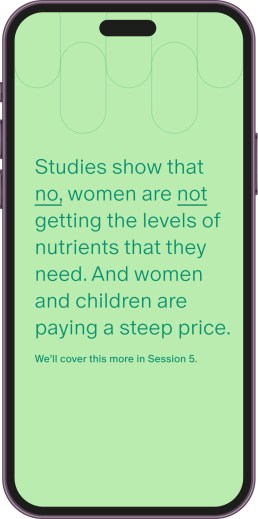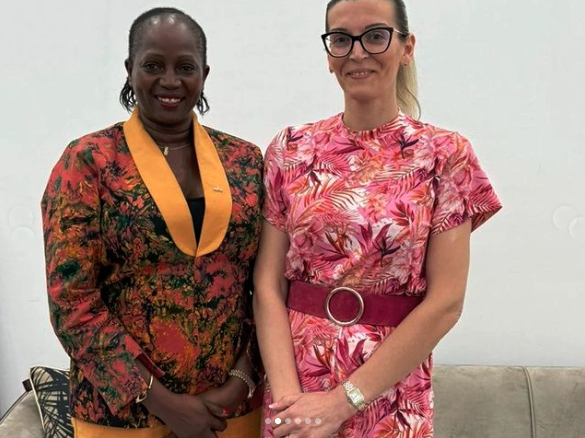Glossy Pop Newsletter: Should health and wellness brands require influencer education?
In 2019, Seed, the direct-to-consumer probiotic in the dark green container — you’ve probably seen it on Instagram — launched Seed University, a program focused on microbiome education conducted entirely via Instagram Stories. The vision was to give creators factual information about products and prevent the further spread of misinformation on social media. The brand itself has 360,000 Instagram followers, while the @seeduniversity account has 13,000.
“We’ve always felt that knowledge is agency,” said Ara Katz, Seed’s co-founder and co-CEO. “When you understand something deeply, you can make better choices for yourself and your body.”
Of the decision to launch the program on Instagram, Katz said, “There was a little bit of a subversive wink … in the spirit of our anti-marketing approach. We thought, ‘If we’re going to build an educational program, let’s build it on the very platform where the most informational transgressions are happening.”
The program was designed to go against the grain of endless-scroll, one-click-buy culture, where “you lose the opportunity to slow down for a second and deeply understand something,” she said.
It also came from the desire to create an influencer marketing future with more accountability. “To work with us as a partner, you had to commit to going through this course and pass the final. Only then would we administer affiliate links and allow you to enroll in our partnership program,” Katz said.
When asked how many people have completed the course to date, Katz said the number is in the tens of thousands.
“We also encourage any company inspired to implement an #accountable program of their own to connect — we’re happy to open-source our learnings,” she said.
To that end, on Thursday, Needed, a 7-year-old women’s health company focused on pre-, peri- and postnatal supplements, launched a similar program dubbed Needed Academy. It will also live on Instagram, where the company has around 100,000 followers.
“The program is designed to help raise the bar around education and ensure that women are receiving the correct information when they turn to social media, in the absence of a doctor,” ” said Julie Sawaya, Needed’s co-founder and co-CEO.
Needed Academy is made up of 10 “sessions,” each covering an aspect of perinatal care, providing information on perinatal nutrition or detailing guidelines about responsibly sharing information about products for this life stage, for example.
“One session out of the 10 focuses on Needed and what sets us apart, but the vast majority of the information is [focused on] education around how our bodies work and what nutrient requirements look like,” Sawaya said. “The first step in becoming a partner of Needed is to go through Needed Academy.”
On Needed’s website, potential influencer partners will find an FAQ informing them that the program will take about an hour to complete, and passing a 15-minute quiz is also required. “Once you’ve passed, you’ll receive a congratulatory gift and have the opportunity to earn partner perks,” the web copy explains. An online form asks for applicants’ social URLs and audience size and whether or not they are a health-care practitioner. From there, they are directed to the @neededacademy Instagram account to complete the 10 modules that comprise the course.
Though Needed has worked with some “higher profile people,” Sawaya cited actor Nikki Reed as an example, and does work with traditional influencers, many of its partners are practicing dietitians, doctors and doulas. They often post on social media about the concerns Needed’s products address, including fertility. The company works with a network of 4,000 health practitioners, some of whom helped develop the Academy curriculum.
On Instagram, the program intersperses video and static text in a way the brand intends to feel engaging. “The quiz isn’t set up as a trick or anything — we want people who go through the program to pass it,” Sawaya said. “But we also want to make sure you’re coming away understanding the content and retaining it and being able to spread it in a responsible way.”

Both Katz and Sawaya spoke about the benefits and suitability of the influencer programs they’ve created. As Katz said, “I only want to work with people who are curious, and I only want to work with people who feel deeply accountable to their community. … I don’t sell hair scrunchies.”
“If you are passionate about this topic, you will sit through the content, retain it and pass the exam. And if you’re not, you may not complete the program, or you may not pass the program. And we’re comfortable with that,” Sawaya said.
Given the ubiquity of social media marketing, it is unsurprising, and perhaps necessary, that such programs have popped up. As many as 80% of women have made purchases based on having seen something on social media.
“We can’t control where people get their health and nutrition information. As practitioners, we can educate on an individual client level, but in a sea of misinformation, it’s no wonder there’s so much confusion,” said Emily Hage, MS, RDN, CDN.
Regarding programs like Seed University and Needed Academy, Hage said, “Requiring all brand partners to complete educational programs is a step in the right direction. My hope is that initiatives like these contribute to a broader push for increased regulation of the industry, demanding higher transparency, quality and safety standards.”
Inside our coverage
Beauty & Wellness Briefing: How beauty brands are having a ‘brat girl summer’
Recently relaunched Von Dutch is getting a boost from Charli XCX
Schwarzkopf Professional partners with Olympic gold medalists on new campaign
Reading list
This Harris-Walz camo hat went viral and sold out within 30 minutes
The Ordinary is betting on TikTok’s body care boom with its newest products
Wallet, keys, personal fan? The new must-have

